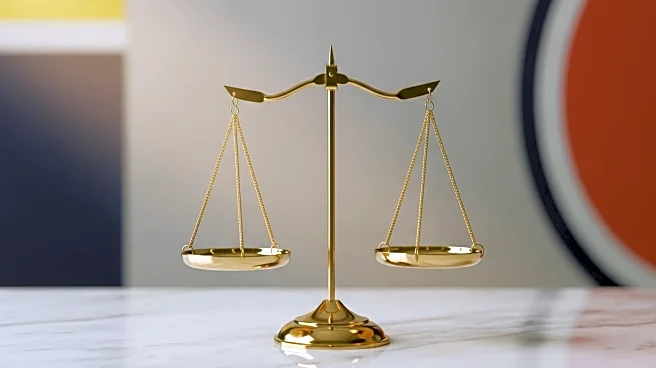What is the story about?
What's Happening?
The College Sports Commission (CSC) has acknowledged a significant error in the reported value of name, image, and likeness (NIL) deals. Initially, the CSC announced that the total value of cleared NIL deals was $79.8 million. However, a correction issued on Friday revealed that the actual value is $35.42 million. This discrepancy was attributed to a clerical error in data provided by Deloitte, which assisted in developing the NIL Go platform. The platform is part of a settlement allowing schools to pay athletes directly for their NIL while also enabling them to earn from external groups. The CSC reported that 6,090 deals had been approved, contrary to the previously stated 8,359. The commission is committed to transparency and periodically releases figures to manage the complex task of evaluating thousands of athlete business deals.
Why It's Important?
This correction highlights the challenges and complexities involved in managing NIL deals, which have become a significant aspect of college sports. The overstatement of $44.4 million underscores the potential for errors in data management and the importance of accurate reporting. The NIL deals are crucial for athletes, as their eligibility can be affected if contracts do not comply with guidelines. The CSC's transparency efforts are vital for maintaining trust among stakeholders, including athletes, schools, and external partners. The incident also reflects the growing pains associated with implementing new systems like NIL Go, which aim to streamline the process of approving and managing NIL deals.
What's Next?
The CSC is working to improve the efficiency of the NIL Go platform and reduce wait times for deal approvals. The commission has acknowledged the frustration caused by initial delays and is taking steps to prevent future errors. As the system matures, the CSC aims to enhance its capacity to handle the volume of deals and ensure compliance with guidelines. Stakeholders will be closely monitoring the CSC's progress in addressing these challenges and maintaining the integrity of the NIL process.
















